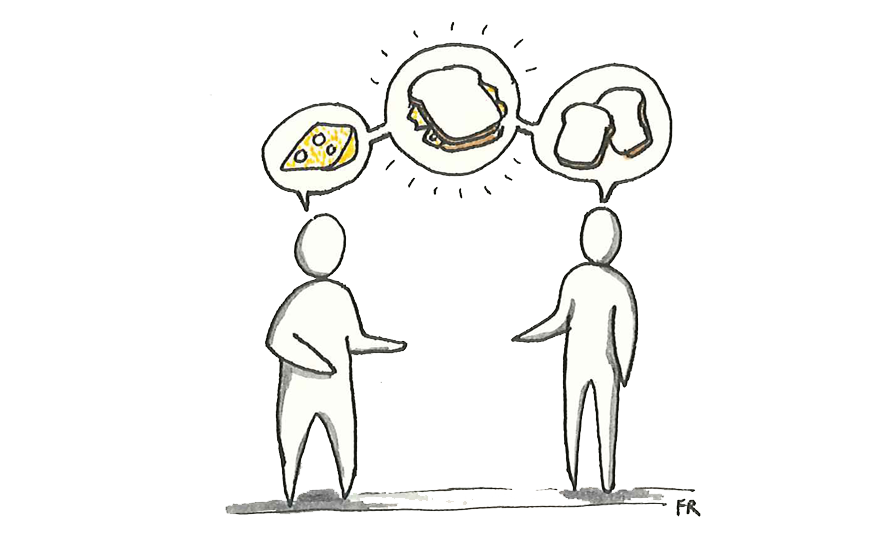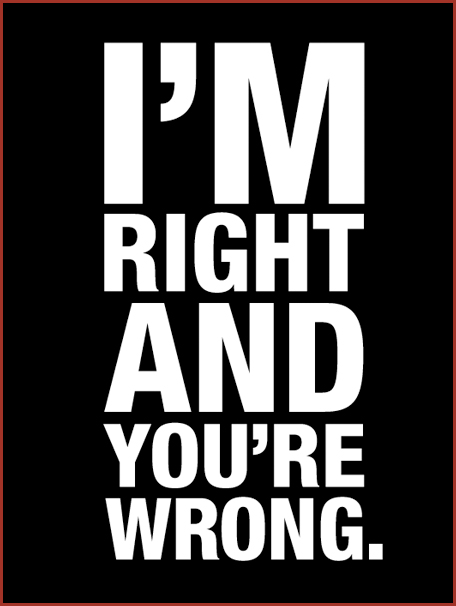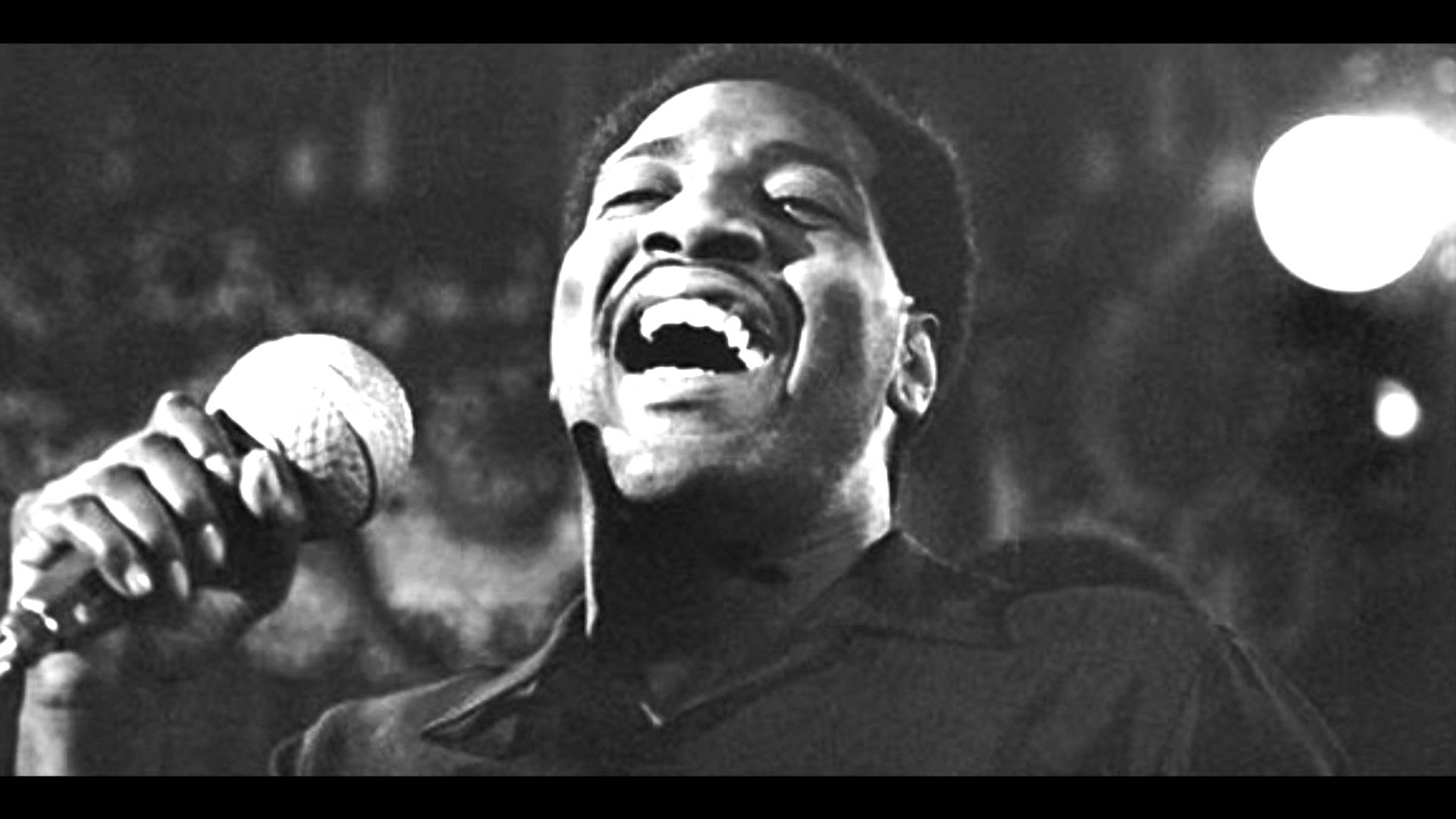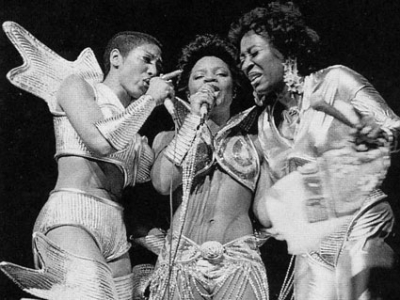
Every day I’m surprised at how much the daily shock wave that used be “the news” sucks the air out of whatever room I’m in. It takes an effort to listen for what’s truly interesting and get to the bottom of it before the latest scandal or outrage gets in the way.
Somehow, I’ve managed to follow some of those threads this week.
Paying taxes last month and being involved in a neighborhood controversy has gotten me thinking about what we “hold in common” as neighbors, as citizens and even as human beings. But finding that commonality (in spite of my value judgments, obliviousness and indifference) depends on understanding who’s coming together and what’s important, both to me and to them.
Whatever the community—Philadelphia, Pennsylvania, America—understanding means getting below the surface clutter to the problems that really matter. A couple of these reality checks got through this week. The commons that we share is in very bad shape.
Mending these tears in the fabric of my communities requires a new frame of reference. Seeing myself and my work as being only about the pursuit of my private profit and personal gain fails to accommodate other ways that I need to flourish in terms of my personal development and the kinds of communities where I want to live and work. It’s locating capitalism within a broader range of human concerns.
There are some practical ways to think about expanding what we value individually and collectively. While selling our time and skills seems to be “the American way,” increasingly so is the value of “commons-based production” where the primary motivation isn’t getting paid but solving a problem that is important to you and to others. Unpaid, skill-based contributions provide alternate ways of encouraging and valuing problem-solving efforts that are undertaken in common.
Some Reality Checks
I work with kids who have lost parents or caregivers to violence, suicide and illness. It hard for them to deal with the anger of being “abandoned” and the grief they feel around the person that they’ve lost. We try to provide a space for both.
My kids are between 8 and 10 years old. Some are adopted. They come from large, often scattered families. Some have trouble coping in school. All seem grateful to be with other kids facing similar challenges. It’s almost impossible for me to imagine their lives or their futures and feel good about them.
In the week between seeing them again, the controversy around two black men being arrested at a Philadelphia Starbucks was all that anyone could talk about. There are problems in this city when it comes to bias and policing, but to me anyway, they seem less important than the day-to-day challenges facing my grieving kids. They also seem far less important than the challenges facing vulnerable black communities in neighborhoods near this Starbucks store. In terms of problems that need solving, it’s a question of priorities.
In an opinion piece this week, Robert Woodson, who is a community development leader, writes as follows:
Although many of the young protesters may authentically believe they are rallying for racial justice, they are in fact playing the role of the decoy. They are a useful diversion for those who reap the profits of the race-grievance industry. Similarly, the continuing mantra of racism serves as a shield for black officials in cities where black neighborhoods have declined and decayed.
While the media focuses on exaggerated instances of presumed racist discrimination, such as the plight of the two nonpurchasing “customers” at the coffee shop, far more grievous problems are ignored. I was born in Philadelphia, not far from where that Starbucks now stands. Back then it was a community that hundreds of low-income black families called home. My father died when I was 9, and I saw how the neighbors and the local fraternal organizations provided buffering support for my mother, who was striving to take care of her five children.
Gentrification in recent decades has brought not only Starbucks but an influx of upscale residents. As in most areas of Central South Philadelphia, low-income families have had to move out of their former neighborhoods. No voice has been raised in their defense, given that this shift was a result of housing policies in a city controlled for decades by black elected officials. But these developments have had serious consequences for low-income blacks: Most have had to move to areas without the supportive community institutions that once provided them stability and resilience. The few families left behind live among the signals of their coming displacement—like the opening of another Starbucks.
Distracted by the surface commotion, I was missing the more serious issue and I suspect that almost everyone else was too.
Another wake-up call was about Pennsylvania. After the 2016 election, many commentators talked about the forgotten voters here who voted for Trump, but this week, those same forgotten communities received a different kind of attention. Pennsylvania has more “deaths of despair” (from suicide, alcohol and drug abuse) than any other state in the U.S.

No one who lives in “a commons” is forgotten and allowed to die like this. At least some of the despair that has caused this death spiral comes from their falling outside of and not belonging to any real community.
We are as divided by indifference as we are by our politics.
A Different Frame of Reference
Because “the business of America is business,” we have come to see what we need most in America as material plenty: at least enough for ourselves and our families, and hopefully a lot more than that. It’s resulted in what many would argue is one of our central problems today: the unequal distribution of America’s material plenty. It’s the 1% against everyone else.
But as Amartya Sen, an economist and philosopher reminds us, the need for material plenty is not the only need that we have and redistributing it may not be the best way to solve our problems. Our material needs co-exist in a system of moral exchange with our “spiritual” needs, such as having the freedom to flourish as individuals. For Sen, our material needs are never favored over the non-material ones. But in determining what we should do when confronting a problem or opportunity, he simply provides a broader array of questions to ask and answer about both of these needs in the struggle to reach a “durable” solution.
For example, in his groundbreaking Poverty and Famines: An Essay on Entitlement and Deprivation (1981), Sen recasts the usual (material) critique of the problem, namely that famine is caused solely by what people lack (namely food and how to pay for and deliver it) by proposing the removal of impediments to the victims’ freedom to provide for themselves (by, or example, changing the ways that society distributes food producing resources in the first place). Almost alone among modern economists, Sen’s system makes difficult economic choices by considering both material and non-material human needs.
In a world of scarce resources, Sen’s approach allows for moral choices that are more nuanced and realistic than merely redistributing material wealth from those who have it to those who don’t. People whose lives are broken by either gentrification or despair might also solve their own problems if society made fundamental economic choices (about matters like taxes, zoning, or the availability of medical care and job training) by acknowledging the role that these victim’s need to flourish could play in the allocation of limited resources.
An essay published this week describes Sen’s singular accomplishment by returning to his consideration of famine.
Every major work on material inequality in the 21st century owes a debt to Sen. But his own writings treat material inequality as though the moral frameworks and social relationships that mediate economic exchanges matter. Famine is the nadir of material deprivation. But it seldom occurs – Sen argues – for lack of food. To understand why a people goes hungry, look not for catastrophic crop failure; look rather for malfunctions of the moral economy that moderates competing demands upon a scarce commodity. Material inequality of the most egregious kind is the problem here. But piecemeal modifications to the machinery of production and distribution will not solve it. The relationships between different members of the economy must be put right. Only then will there be enough to go around. (the italics are mine)
If you’re interested in reading more about Sen, this article in The Guardian a few years back offers an overview of his ideas and how they contribute to the uniqueness of his approach to the future today.
The Joy of Contributing to a Common Effort
Adam Smith was not merely the poster-boy for capitalism as we know it. In addition to The Wealth of Nations (the first modern book about economics), he also wrote The Theory of Moral Sentiments (which argued that our self-interests should always be balanced by our sympathies for others).
Amartya Sen isn’t opposed to capitalism. He simply attempts to overcome some of its limitations by defining human needs more broadly where resources are limited.
Similarly, an essay this week about “commons-based production” from two scholars visiting Harvard from Estonia is not, in their words, merely “small-scale, bucolic, catering to an Arcadia, a dream-world for Leftie intellectuals.” What their argument does is provide one, already-operational template to harness Smith’s and Sen’s desire to solve economic problems in more human-centered (and less self-interested) ways.
The essay’s authors begin by noting the revolution in information and communications technology that has given rise to cooperative endeavors like freely contributing to the base of general knowledge in Wikipedia and to the open-source programming of software like Linux. These web-based possibilities have not changed who we are as human beings, but they do allow us “to develop in ways that had previously been blocked, whether by chance or design,” according to the authors. Sen would say that they provide new avenues for human flourishing in the economic sphere because there are considerations beyond buying, selling and material gain.
The author’s write:
There are many reasons to contribute beyond or beside that of receiving monetary payment. CBPP [or Commons-based Peer Production] allows contributions based on all kinds of motivations such as the need to learn or to communicate. However, most importantly, a key incentive is the desire to create something mutually useful to those contributing. This also generally means that people contribute because they find it meaningful and useful, and they believe the resulting product worthwhile. Wikipedians and hackers primarily want to create something useful for themselves, and for other people, not for the market or for short-term profit.” (again, the italics are mine)

Rising technologies like block-chain, which can remove banks or governments as intermediaries to economic transactions will make possible additional kinds of collaboration and unlock new kinds of empowerment and wealth creation. In a February newsletter (“Innovation Driving Values”), I wrote about a platform that gives poor people the ability to publish clear title to their land via blockchain. In a newsletter last October, I talked about a social media hybrid called Steemit, where contributors are paid for their “involvement” on the site as writers, commenters, and likers instead of giving away “their involvement” in exchange for “free” use of, say, Facebook’s platform and Facebook’s sale of their information to advertisers. In other words, these technologies make it possible to consider not only new ways of cooperating but also of new ways of profiting from cooperative exchanges.
Not changing the whole world, just the parts of it that touch us.
We are all motivated by more than how much money we make, how much it can buy, and how well it insulates us from everyone else.
Our “spiritual,” non-material, cooperative and collaborative motivations provide ways to bridge some of what divides us in each commons of our public lives, from our neighborhoods, to the states where we live, and finally within America itself.
We can elevate our problem solving by acknowledging that everyone who shares a public commons with us wants the freedom to flourish. The economic choices we make as stakeholders will be more durable and satisfying when we learn how to do so.
Without the need to make money, we can leverage the technological innovation that is making it possible to collaborate with one another to create products that are useful and worthwhile because of the joy in doing so. Moreover, it’s a cooperative approach to problem solving that can be utilized in the public commons that we also share.
I still have a long way to go in thinking through these ideas. I know that they don’t come together in a perfect argument, or even a very good one. On the other hand, I fear that what divides us from one another over what is necessary and important poses the single greatest risk that we face today in each of our communities.
Deaths of despair, a persistent preoccupation with lesser problems as a way to avoid the more serious ones that are staring us and our leaders in the face: these are canaries in the coalmine where we find ourselves, and more of them keep dropping.
 Thinking more broadly about what we value and bringing that perspective into new kinds of problem-solving in the commons seems the most fruitful way forward—however cobbled together my current game plan. If you’ve been thinking about what divides us today and what can be done to bring us together, I’d love to hear from you.
Thinking more broadly about what we value and bringing that perspective into new kinds of problem-solving in the commons seems the most fruitful way forward—however cobbled together my current game plan. If you’ve been thinking about what divides us today and what can be done to bring us together, I’d love to hear from you.
For our own sake, we urgently need to find more common places where what’s important to us overlaps.
Note to readers: in a different form, this content was included in my May 6, 2018 Newsletter.











 This time it was Charlie Gray who came to our rescue. Once inside, we were packed like sardines, the only “out-of-towners,” and the crowd in front of and behind us started getting rowdy about whether we belonged. “What are you doing here?” “Go back where you came from.” It was already loud in The Crib but our being there took everything up a notch and Charlie noticed.
This time it was Charlie Gray who came to our rescue. Once inside, we were packed like sardines, the only “out-of-towners,” and the crowd in front of and behind us started getting rowdy about whether we belonged. “What are you doing here?” “Go back where you came from.” It was already loud in The Crib but our being there took everything up a notch and Charlie noticed.